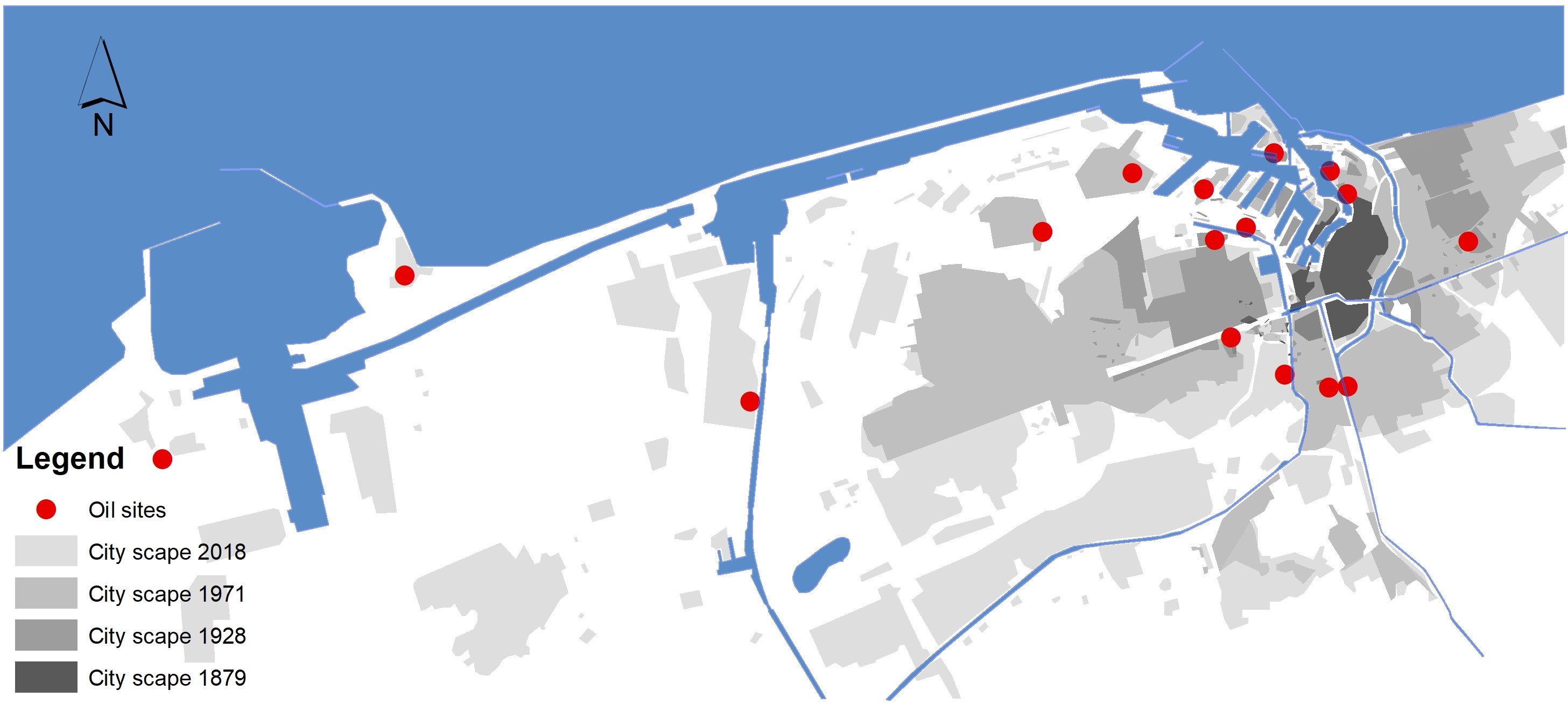The oil industry is on the decline, but we are not done with its legacy. Pollution and restrictive regulations that are left behind are a danger and complicate the energy transition, Stephan Hauser notes in his PhD research. We cannot leave the solution to politics, given the many ties to the oil industry.
Petrochemical installations are still puffing out their smoke in the Rotterdam port area, but that image is quickly disappearing in smaller European ports. More and more refineries and oil storage facilities are being demolished, a history of 150 years of industrial activity seems to disappear like snow in the sun. “Rotterdam and Antwerp are the last men standing,” says Hauser, a jurist in environmental law. “Elsewhere in Europe, installations are closing.”
For example, the two oil refineries in Dunkirk in northern France are already closed and demolition has begun. The steel to be removed is equal to five times the weight of the Eiffel Tower. Dunkirk is a special case anyway. Hauser discovered in archives that about twenty oil sites disappeared without a trace. Probably destroyed in World War II, but the ground has never been cleaned. City dwellers today have their vegetable gardens in these heavily polluted locations. According to some studies, high cancer rates in these areas could be directly related.
The traces of disappeared production sites can also be found in cities that have not been affected by war. It is true that since the emergence of the oil industry around 1860, there has been a growing awareness that processing and storage of oil products is dangerous and dirty. Regulations were therefore gradually tightened and installations were increasingly forced to the outskirts of cities or outside them. “Legislation on the oil industry has been driven by the disasters,” Hauser says. “But because of their enormous political and financial power, oil companies have managed to shape them in such a way that they are very difficult to change. They did not accept obstacles to their development.”
It can be seen in the extreme complexity of regulations or in the lack of precision in it. For example, regulations often state that the government determines when a restriction applies. In practice, this lets oil companies get away with old practices, because municipalities like large employers such as Shell or Total within the city limits. They are an engine for economic development. “It doesn't just make it more difficult to hold oil companies responsible for pollution,” Hauser says. “Past decisions by legislators are now also complicating the energy transition.”
In his PhD research 'The Oil is Dying? Long live its "Heritage"!' he notes that oil companies are deliberately delaying green policies. They do understand that the fossil age is coming to an end, but they want to make the transition as painless as possible. The oil lobby might usually be strongly represented in the development of climate agreements. “But they don't do that to speed up the process. On the contrary, they already knew they were causing climate change in the 1970s,” says Hauser. “The reason why they succeed in their plans lies in the genesis of the regulations.”
The way the oil industry uses its influence and influences legislation resembles the way the chemical industry did three centuries ago. When the Grenelle munitions factory in Paris exploded in 1794, killing more than a thousand, the factory owner used his influence to avoid mentioning his industry in the new legislation. How could he? He was the minister himself.
In the present day we see in governments people with ties to the oil industry as well. Will they provide clear new restrictive legislation for the oil industry? Hauser does not think so. “I advocate the establishment of national agencies, independent of the government, that will determine long-term policy. Otherwise, the oil industry will hold back innovations and environmental regulations for decades to come.”
Summary of the thesis
Oil is a dangerous product. Its transport, storage and refining present numerous environmental, health challenges and local, national, European regulators have taken steps to locate it in space since the beginning of industrial oil drilling in the 1860s. Key leaders of the oil industry in Northwest Europe, and beyond, have also served as policy makers and aimed to keep legal constraints (decrees, laws, taxes) as limited as possible to prevent the emergence of obstacles in the development of their industry. This process led to a cruel lack of anticipation in the design of rules and urban spaces. Public authorities established limited frames upon the oil industry and wrote rules in general terms to protect this strategic industry. Today, the pollution and the risks oil companies generated restrict opportunities for the future re-use of industrial sites, and there has been little done on the law-making scale to guide the transformation of oil spaces. Using the case of port cities like Dunkirk, in France, that have emerged as oil ports for their respective countries over the last 150 years, this thesis examines the emergence and application of spatial and environmental regulations along with oil industrial expansion. The objective is to highlight the need to shift from the current reactive process of improving legal frames after a disaster to help the development of anticipatory measures in the transformation of the oil heritage.
Published: February 2022
More information
- PhD thesis 'The Oil is Dying? Long live its "Heritage"!'.
- More information about the PortCityFutures project.


